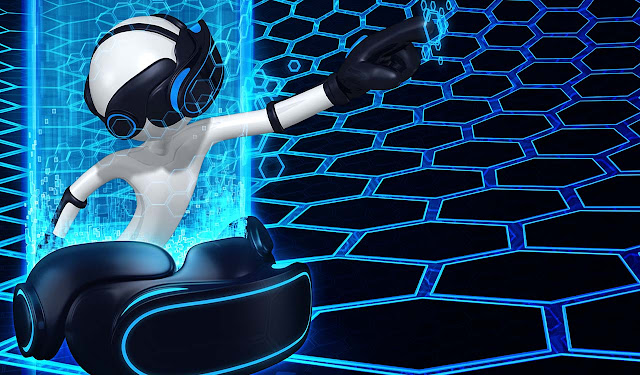Haptic technology refers to a
technology that can create an experience of touch by applying forces,
vibrations, or motions to the user. This technology is utilized in a wide range
of applications such as automotive interfaces, medical training, gaming, and
virtual reality. The goal of this technology is to simulate the sensation of
touch with several mechanisms. Also, this technology can offer a more immersive
experience to the users by allowing them to feel and interact with virtual
objects as if they were real. There are several types of haptic technology
which include Force feedback, Tactile feedback, and Motion feedback. Further,
it is a crucial sector that is constantly rising, and it has the potential to
revolutionize how we interact with computers and other devices in the future.
Haptic Technology Market Key Factor Driving Growth:
·
The growing demand for haptic technology in
mobile devices is propelling the growth of the global haptic technology market
and is predicted to maintain its dominance over the forecast period as the
adoption of tablets and smartphones is rising rapidly.
·
Development in the automotive sector is the
other factor driving the global market as haptic technology is progressively
utilized in the automotive sector for enhancing safety as well as driver
experience.
·
Another factor enhancing the growth of the
market is virtual
reality and augmented reality technologies as these technologies boost the
users' experience and make it more immersive.
·
Growing investment in research and development
of haptic technology is predicted to uplift the industry's growth as it
enhances the evolution of new and innovative products.
·
Further, medical technology is considered the
major factor expected to propel the industry share over the assessment period
as this technology is utilized in medical devices and simulations to boost the
accuracy and realism of medical procedures.
However, the absence of standards
and huge costs are the major factors restricting the growth of the global
haptic technology market. Also, limited applications and limited compatibility
are the other factors hindering the industry's growth. Further aspects
predicted to uplift the global market are regulatory issues and the absence of
awareness.
As per the study published by
Emergen Research in March 2023, the global
haptic technology market size was USD 2.90 Billion in 2022 and is predicted
to reach a revenue CAGR of 12.0% over the projection period. Also, the study
enlists various important factors, starting from the basics principal to
advanced market intelligence which plays a vital part in strategizing.
For instance, as per the Global
System for Mobile Communications Association, there will be 5.9 billion
distinct users globally by 2025. Growing acceptance of haptic technology in the
electronics sector is anticipated to boost the market share over the forecast
period due to the several advantages such as improved sound, touchscreen, and
visual effects in display touch applications.
Additionally, in February 2021, Immersion
Corporation and Faurecia Corporation approved a multi-year licencing deal to
allow Faurecia to purchase Immersion's haptic technology solutions. Faurecia
will be able to design an intricate, interactive haptic user interface using
cutting-edge technology from Immersion Corporation.
The leading players operating in
the global haptic technology market include Texas Instruments
Incorporated, Analog Devices, Inc., Microchip Technology Inc., Semiconductor
Components Industries, LLC, Precision Microdrives Limited, NIDEC COPAL
ELECTRONICS, Synaptics Incorporated, Cypress Semiconductor Corporation,
Samsung, Johnson Electric Holdings Limited, Methode Electronics, Apple Inc.,
SMK ELECTRONICS CORPORATION U.S.A, Immersion, ALPS ALPINE CO., LTD., Visteon
Corporation, and AAC Technologies.
In conclusion, haptic technology
is anticipated to grow at a significant rate over the projection period. There
are several factors responsible for global market enhancement that includes
rising awareness and advantages of haptic technology. Further, the technology
has been progressively utilized in several applications that include
automotive, healthcare, gaming, and virtual reality, among others.




No comments:
Post a Comment